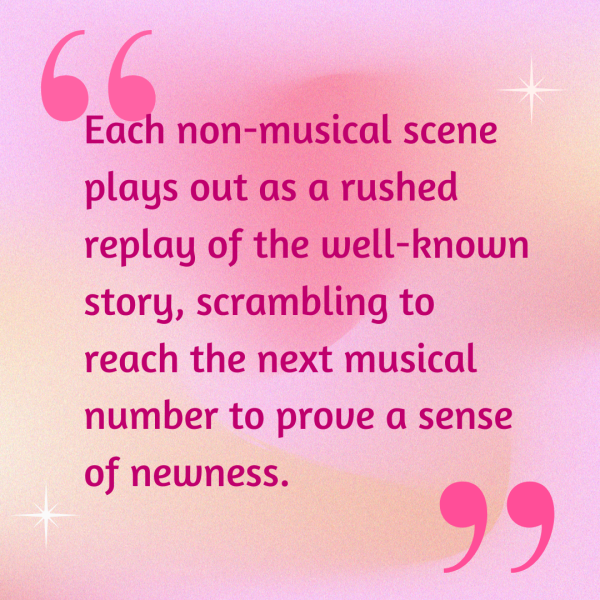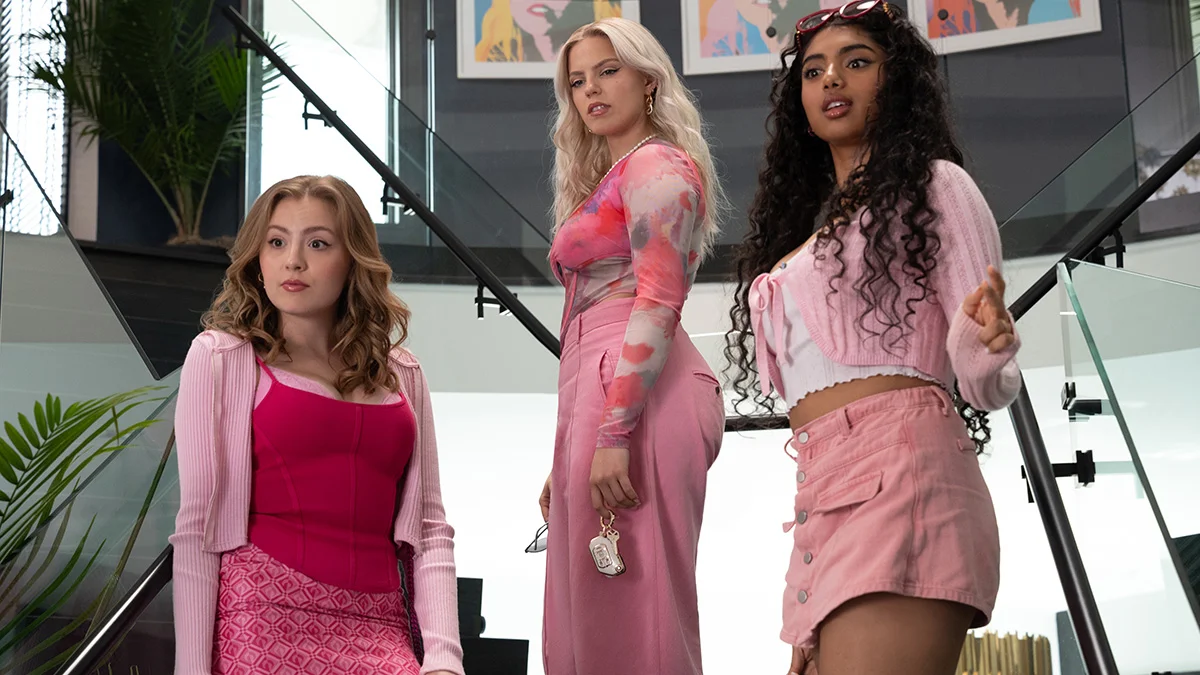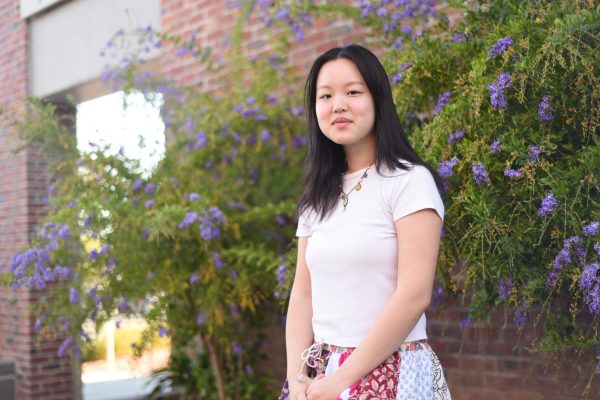Released in theaters on Friday, Jan. 12, “Mean Girls” reminisces on a nostalgic era of glitzy teen rom-coms two decades after the release of its 2004 cult-classic progenitor, “Mean Girls.” With the original film aging into a cornerstone of pop culture since its instant success, the audacious remake bears the burden of upholding an extensive legacy. “Mean Girls” is not only a remake, but also a film adaptation of the 2018 Broadway show, “Mean Girls The Musical,” bringing its beloved musical numbers to the big screen.
Emerging from the early 2000s era of exclusionary, monolithic beauty standards, “Mean Girls” takes strides in inclusivity with its eclectic cast, embracing diverse racial backgrounds, queer identities and inclusive body types. The remake seizes the opportunity to make amends for its predecessor’s dated and problematic dialogue, eschewing the use of the insensitive jokes that have aged poorly among a contemporary, socially conscious culture. Queer-coded characters who were shunned by the original film are redefined with their queer identities accepted as a natural aspect of their characters and removed from the scrutiny they were once under.
“Mean Girls” finds its singularity through reinterpreting Broadway musical numbers, ranging from heartfelt ballads to highly-produced sequences, which allow the film to distinguish itself from its predecessor. Distinctive cinematography choices and experimental set design maximize the flexibility of the film format, breathing more life into the classic musical sequences. Time seems to stop in the vibrant rendition of “Someone Gets Hurt,” featuring Singer and original Broadway cast member Reneé Rapp’s powerful vocals against the backdrop of a slow motion, dream-like party scene. However, many of the musical sequences tend to blur together with the exception of a few numbers bolstered by Rapp’s fiery performance.
While marketed as “a new twist” on the beloved classic, the dialogue in “Mean Girls” is largely replicated from the original film verbatim. While this choice preserves the quotable appeal of the original film, the new cast is far too aware of the iconic nature of its predecessor to deliver it in its own way. Much of the enjoyability of “Mean Girls” hinges on its reminiscence of a familiar favorite, thereby losing itself as a truly respectable standalone film.

Similarly, the storyline manifests as a sluggish regurgitation of the original film, leaving hardly any room for the progression of a genuine story. Each non-musical scene plays out as a rushed replay of the well-known story, scrambling to reach the next musical number to prove a sense of newness. Awkward breaks into to song and dance are often ill-placed mid-conversation, involuntarily creating a comical viewing experience akin to watching a film continuously interrupted by music videos. Ingenuity is attempted but failed through poorly executed integrations of current trends to appeal to an audience of newer generations, and such additions only take away from the allure of “Mean Girls” as an early 2000s landmark.
While the cast’s combined musical theater background paired with their diverse identities makes for moments of a zealous new production, “Mean Girls” falters in attempting to both pay homage to its beloved progenitor and establish an identity of its own. As the original film continues to leave its enduring impact, futile attempts from “Mean Girls” to breathe fresh air into the already cherished narrative render it a pointless take on a timeless classic.
Rating: 2/5
















